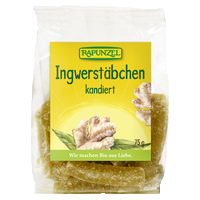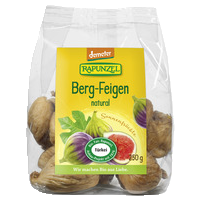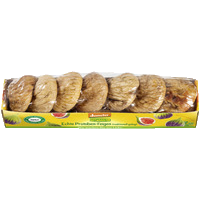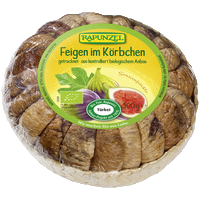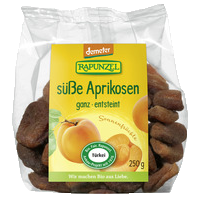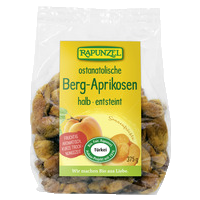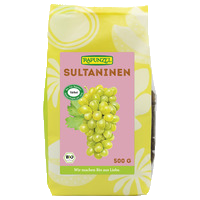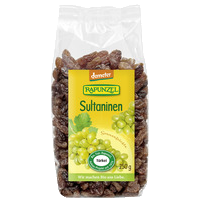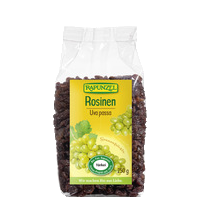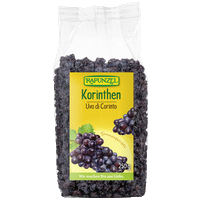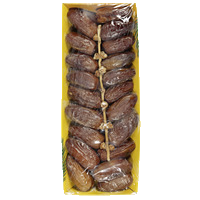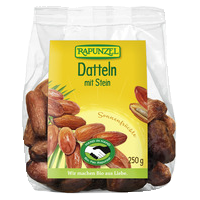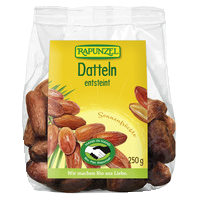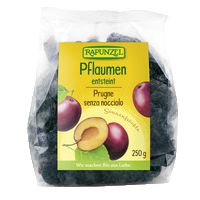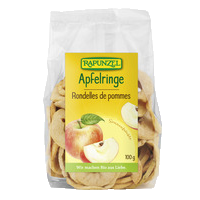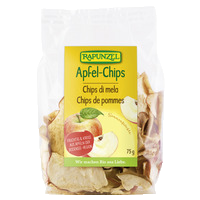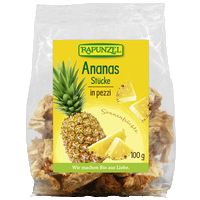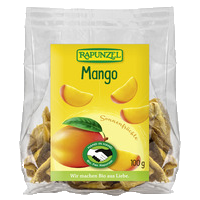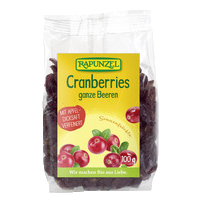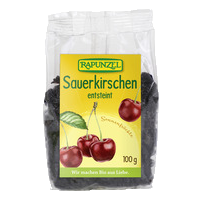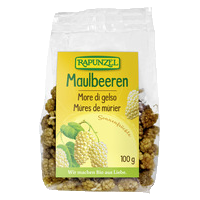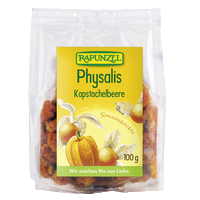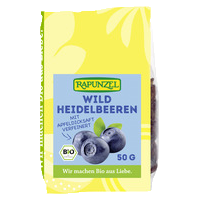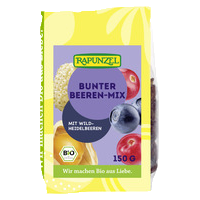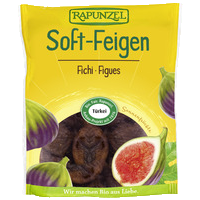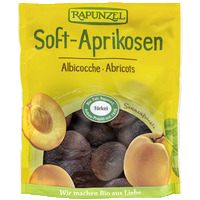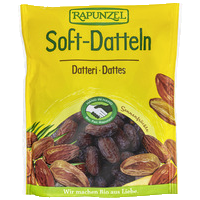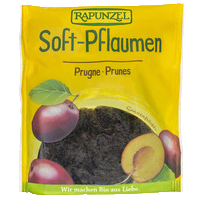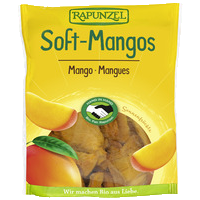Product overview
Dried figs, dates, raisins and other dried fruit have been an important part of our dietary plan for a long time thanks to their nutrient wealth. The concentration of essential ingredients, especially carbohydrates, vitamins and minerals in dried fruit is five times higher than in fresh fruit and they hardly have any fat.
The sweet essence – valuable energizers
In earlier times, dried fruit were an essential part of the travel provisions that nomads used during their trips through the desert. Today, we use them mainly as handy power snacks during physical exercise or as in-between energizers.
The small, dried fruit also play an important role in the kitchen. They give both savory and sweet dishes a wonderful flavor.
Rapunzel quality
Our dried fruit products are neither sulphurized nor treated with other synthetic or chemical substances. Fruits that are used for the dried fruit production stay on the tree until they have reached perfect maturity. This way, they can unfold their full aroma and develop an intense flavor - for a tasty indulgence!
Soft fruits – the smooth ones
Our soft dried fruit products are processed in a special way: soft figs, soft apricots and soft plums are pasteurized after the drying. The pasteurizing makes them particularly soft and fruity. A special, mild dried fruit treat.
Small things, big effects!
The sweet essence – valuable energizers
In earlier times, dried fruit were an essential part of the travel provisions that nomads used during their trips through the desert. Today, we use them mainly as handy power snacks during physical exercise or as in-between energizers.
The small, dried fruit also play an important role in the kitchen. They give both savory and sweet dishes a wonderful flavor.
Rapunzel quality
Our dried fruit products are neither sulphurized nor treated with other synthetic or chemical substances. Fruits that are used for the dried fruit production stay on the tree until they have reached perfect maturity. This way, they can unfold their full aroma and develop an intense flavor - for a tasty indulgence!
Soft fruits – the smooth ones
Our soft dried fruit products are processed in a special way: soft figs, soft apricots and soft plums are pasteurized after the drying. The pasteurizing makes them particularly soft and fruity. A special, mild dried fruit treat.
Small things, big effects!
Dried Fruits
Frequently asked questions about dried fruit
What is the white bloom on dried fruit?
A white bloom on figs can often be observed in the summer. This process is often confused with the formation of mold. However, the formation of this white bloom is a natural process as the fruit sugar crystallizes and forms this white layer.
During the drying process, residual moisture remains in the fruit. Over time, the residual moisture becomes less and less. Fruit sugar that crystallizes and dries on the surface forms the typical whitish layer. Sugar crysatallization that is typical especially for figs and plums is an indication that our organic dried fruit are untreated. Conventional dried fruit are often fumigated with sulphur dioxide in order to preserve them and to prevent sugar crystallization.
What are the differences between sultanas, raisins and currants?
Dried grapes are either called grapes, raisins, sultanas or currants. In general, they are referred to as "raisins".
Rapunzel sultanas and raisins are produced from white grapes of the same variety. The only difference is that sultanas are dipped and have a lighter color. "Dipping" refers to the brief immersion of the grapes into a water-potash solution. Raisins do not get dipped and have to be dried for a longer time.
Currants are small, blue grapes without pits. Their name comes from the Greek harbour town Korinth where this type of grape is mainly grown.

